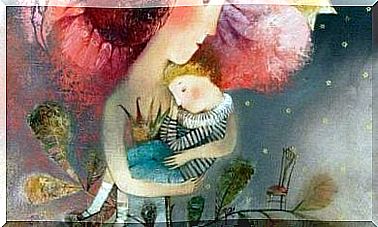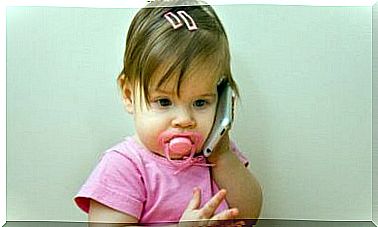The Importance Of Using Humor In The Classroom
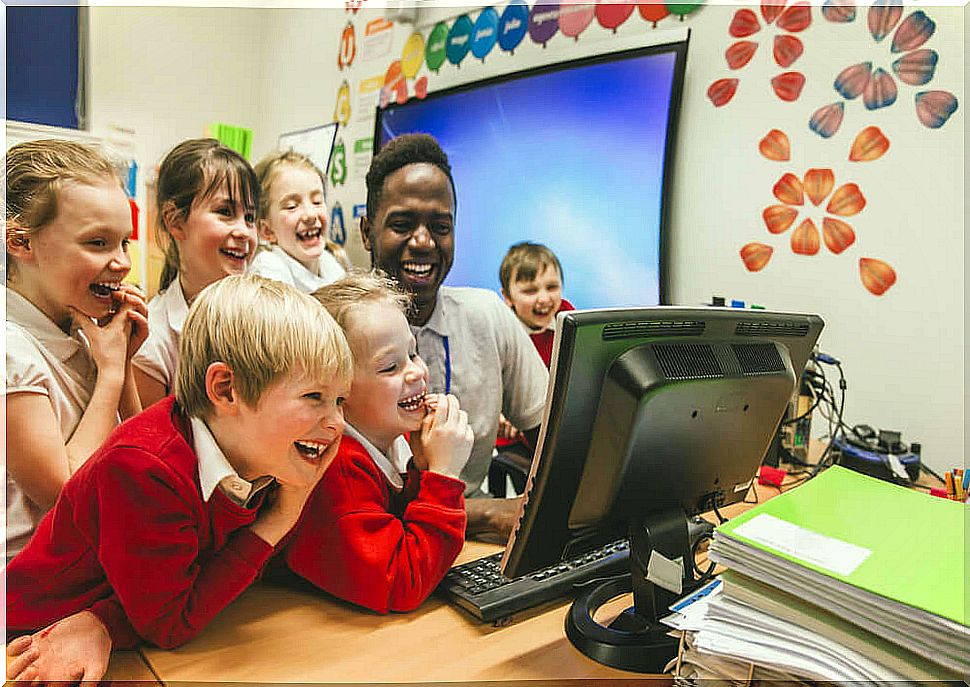
There is no doubt that education is very important for society to move around. But that does not mean it has to be serious and stressful. By lightening the mood and using humor in the classroom, you can see many benefits, both for students and teachers.
We have all had negative experiences at school. Many of us remember the peer pressure, the shame, the fear of the teacher and the tense atmosphere at the place we spent most of our days. Fortunately, education models are beginning to change. In fact, more and more teachers are striving to make learning a fun and rewarding experience.
Humor is the foundation of learning
We can consider humor as everything that gives rise to laughter and fun and positive emotions, such as funny stories, games and lots of other stimuli. In fact, humor stimulates the brain’s reward system in a healthy and direct way. This is why children play to discover and learn about the world around them.
By playing, they explore, discover and practice important behaviors. But they do it in a relaxed and rewarding way. Therefore, when they can, they want to play the game again to relive the positive emotions.
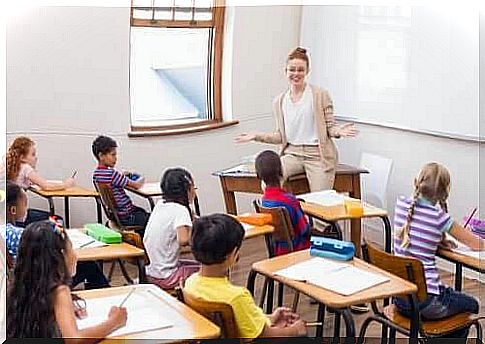
It has been shown that the most effective learning is that which is associated with a feeling, preferably positive.
Benefits of using humor in the classroom
Reduces stress and strengthens motivation
The learning process can be tough and demanding. Students often feel frustrated. They have to deal with failures, boredom and stress. If this turns out to be the case, the classroom becomes a stressful environment that gives rise to negative emotions. This can lead to symptoms of anxiety and depression at increasingly younger ages.
In the same way, teachers are also in this tense and exhausting environment every day. Therefore, they may be burnt out and even notice that their mood is negatively affected.
Using humor in the classroom helps to create a positive and relaxed atmosphere. Mistakes do not lead to shame or humiliation, but the children instead feel positive emotions such as cooperation and empathy.
Undoubtedly, this will help both teachers and students feel better and have a better quality of life. In addition, it will motivate everyone to make an effort in a more enthusiastic way. Who does not want to continue learning when it is fun and enjoyable and when it creates positive emotions?
Relationships to improve learning
A large part of the teaching is based on social relationships and connections. Teachers must be able to capture their students’ attention and communicate information to them. Likewise, peer relationships are also very important. Humor promotes friendship, intimacy and cohesion between people.
Emotional walls break down and a much more responsive and trusting classroom opens up. Thanks to humor, tensions release, relationships become closer and communication improves. In addition, fun information is more attractive and pleasurable. Therefore, children remember what they learned more easily.
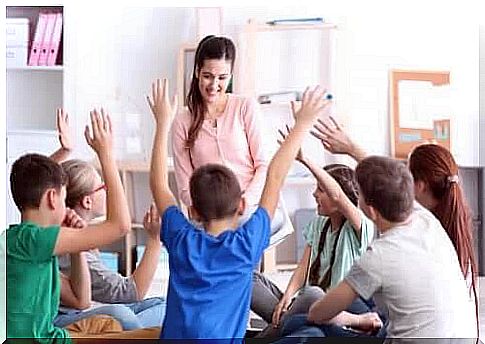
Humor facilitates mental flexibility
Aspects such as creativity, cognitive flexibility and analytical skills are of great importance for life outside school. But schools often have strict curricula that do not allow children to actively participate in their education. Therefore, they become passive recipients of information, which may not even arouse their curiosity.
Using humor in the classroom promotes open, flexible senses. It stimulates the students’ different thinking abilities. It also helps children to see things from other points of view and from other perspectives.
What should humor in the classroom look like?
Of course, not all humor will work. Teasing, humiliating or laughing at the expense of someone else will only make the students feel suffocated. Humor in the classroom must focus on building relationships and learning from their mistakes.
Therefore, use jokes that unite the group. Make the children feel like they belong! Encourage a relaxed and positive attitude towards mistakes, see them as a natural part of the learning process.
